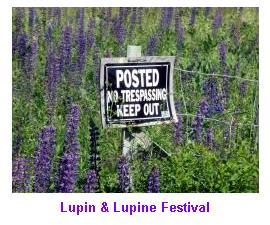
Camping Do's and Don'ts
Stress Free Ways To Make Every Adventure Safer
NH's forests and campgrounds are pretty safe places, but every adventure could be safer and go more smoothly with a little planning and attention to details.
The most important thing, if you are hiking or camping in the woods, is to tell someone your plans and stick to them. Want/need to change your plans, let them know! Knowing when someone should raise the alarm might be the key to your survival.
Got that covered? Now follow these common sense ideas!
Preparation
Check all your equipment. Leaky batteries, broken air pumps, dull hatchets or missing tent poles can all make for miserable camping experiences.
Pack first aid supplies and drugs. Expect slivers, bug bites, small cuts or bee stings. If anyone in your group has sensitive skin, also pack supplies for allergic reactions. Don't forget prescription meds.
Include extra bug spray and sun screen. If you use 'natural products' maybe this is a good time to invest the 'commercial stuff'. You're leaving your home to temporarily reside in their home.
Pack a haversack. Anticipate hiking and be prepared. Bring snacks, water, a map, compass, small flashlight, extra batteries, waterproof matches, whistle, emergency blankets, lightweight poncho, and extra clothes.
Study a road map and a topographical map. Know the area before you go, and have a general plan of what you expect to do with those lazy afternoons.
Consider taking a first aid course. Slips and falls are more likely when you're in the woods. If they happen late in the day, in cool or cold weather, or a few miles from civilization, trouble can compound quickly. Even a simple sprained ankle can precipitate miserable or life threatening complications if handled improperly or you are not prepared.
Prepare for unexpected weather. 80 degrees in the valley can be the 50s at the top of Mt. Washington. Plan ahead. Get weather forecasts for at least a day beyond your planned itinerary and be prepared for later predicted weather to roll in early. Make sure you have warm clothes and sleeping gear that will accommodate temperatures at least 10 degrees lower than you anticipate needing. No sleep is no fun!
Plan easy meals. Fresh air and exercise seem to make people especially hungry. You may cringe at the thought of burgers and dogs, and junk food galore, but consider this: lugging water, and heating it to clean dishes every meal can seriously cramp recreation time. Plan quick meals and have more fun!
Showers, anyone? Some campsites provide coin operated shower facilities but many don't. If you can't survive without a hot shower every day, you better check in advance. Also, bring quarters!
Prevention
Arrive early and set up camp in daylight. Don't be caught setting up camp in the dark, and remember, darkness arrives earlier under the forest canopy. An early arrival might also help get a better campsite.
Inspect your campsite for hazards: insect nests, broken glass, poison ivy, tree roots, overhanging branches, etc.
Anticipate weather events. Will the contour of the land direct runoff though your campsite? Will strong winds bring dead branches down on your tent?
Cook and use hot lanterns safely. Do you need to move the tent or the table? If the wind picks up, could sparks fly unto the tent? Only use battery powered appliances in tents!
Protection
Don't sleep on the ground in cool weather! You might pride yourself in being able to 'rough it', but having an extra blanket or an air mattress between you and the ground for insulation will help make you considerably more comfortable.
Avoid stings! Leave perfumes and colognes home, and dress in whites or light colored clothes. With a million or so bugs per square mile, there always seems to be one that will confuse your bright red top as a bouquet of flowers!
Don't pet Bambi! Stay away from all juvenile and baby animals, and their adult kin too! NH forests are very safe but all mothers will protect their young, and occasionally animals will have rabies. That is particularly true of bats, skunks, foxes and raccoons.
Don't feed the animals! Bears are bright, inquisitive, and persistent. Keep your campsite free of food odors that can attract bears. Lock all food in your car, clean all utensils, and dispose of trash in the bear proof dumpsters provided by the campground. NH has no recorded deaths from bears since the 1700's. Don't spoil our record!
Stay away from moose. Because they tend to ignore you, it may seem safe to try to get closer. That's an illusion. Enter their 'personal' space and they can be unpredictable, especially cows with young, or bulls during rutting season.
Drive carefully, especially at night. Deer can be blinded by headlights, and moose rarely retreat. Because of their long legs, moose often come through the windshield during collisions. If their 1,000 pound bodies don't scare you, just think of their average 15,000 ticks. Skip moose-cuddling and stick with canoodling someone you love! Everyone will be happier!
Finally, if you run into trouble, take a moment and think your way through the problem and possible solutions. Unless you are immanent danger, taking 5-10 minutes to sort things out could save your life or spare you untold grief.
Tip: Fill and freeze some plastic water bottles a few days ahead and use those in your ice chest! No melt mess and you can drink them too!
About the Author
George C. Jobel is a lifelong outdoor enthusiast and a web developer & online marketer since 1995. The author of numerous articles and publications, you can reach him at his
web site, or 603.491.4340.
|















 1
1 2
2 3
3 4
4 5
5






